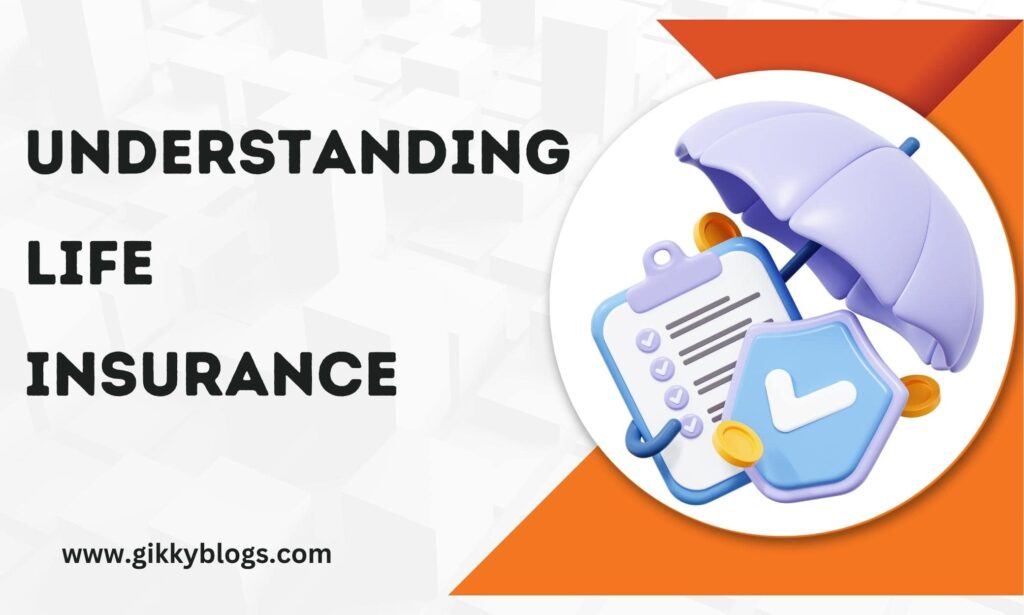Life is unpredictable, and preparing for the uncertainties it may bring is a responsible step towards securing your family’s financial future. One way to achieve this security is through life insurance. In this comprehensive guide, we’ll delve into the intricacies of life insurance, exploring its types, benefits, and how it can serve as both protection and an investment.
Table of Contents
Understanding Life Insurance

Life-insurance is a contract between an individual and an insurance company, where the insured pays regular premiums in exchange for a lump sum payment (death benefit) to beneficiaries upon the insured’s death. This financial safety net ensures that loved ones are taken care of in the event of the policyholder’s passing.
Types of Life Insurance Policies
Term Life-Insurance
Term life-insurance provides coverage for a specific period, offering a straightforward death benefit. It’s often more affordable, making it an excellent choice for those seeking temporary financial protection.
Whole Life-Insurance
Whole life-insurance covers the entire lifetime of the insured and includes a cash value component that grows over time. This type of policy provides both protection and a potential investment opportunity.
Universal Life-Insurance
Universal life-insurance offers flexibility in premium payments and death benefits. It combines aspects of term life-insurance with an investment component, allowing policyholders to adjust their coverage and premiums.
Importance of Life Insurance
Financial Security
Life-insurance provides a financial cushion for beneficiaries, helping cover outstanding debts, mortgage payments, and daily living expenses.
Estate Planning
Life-insurance plays a crucial role in estate planning, ensuring a smooth transfer of assets to heirs while minimizing tax implications.
Business Continuity
For business owners, life-insurance can safeguard the continuity of the business by providing funds to cover expenses, repay debts, or facilitate a smooth transition.
How Does Life Insurance Work?

Premiums
Policyholders pay regular premiums, which can be monthly or annually, to maintain coverage.
Death Benefit
The death benefit is the amount paid to beneficiaries upon the insured’s death, providing financial support during a challenging time.
Cash Value
Certain policies, like whole life-insurance, accumulate cash value over time, allowing policyholders to access funds or use them for investment purposes.
Factors Affecting Life-Insurance Premiums
Age
Age is a significant factor influencing premiums; generally, younger individuals enjoy lower premiums.
Health Condition
The overall health of the insured plays a crucial role. Non-smokers and those with a healthy lifestyle often receive more favorable rates.
Lifestyle
Occupation, hobbies, and lifestyle choices can impact premiums. Riskier lifestyles may lead to higher insurance costs.
Common Misconceptions about Life-Insurance
Life Insurance is Only for the Elderly
Contrary to popular belief, securing life-insurance early offers lower premiums and ensures long-term financial protection.
Life Insurance is Expensive
With various policy options available, life-insurance can be affordable, especially when tailored to individual needs and budgets.
Employer-Provided Coverage is Enough
While employer-provided coverage is valuable, it may not be sufficient. Personalized policies offer more comprehensive protection.
Choosing the Right Life-Insurance Policy
Assessing Financial Needs
Understanding financial goals and needs is crucial in determining the most suitable life-insurance policy.
Comparing Policies
Carefully comparing different policies helps identify the one that aligns best with individual circumstances.
Consulting with a Financial Advisor
Seeking advice from a financial advisor ensures informed decisions and a tailored approach to life insurance.
Life-Insurance and Investment
Whole Life Insurance as an Investment
Whole life-insurance’s cash value component can serve as a stable investment option, providing both protection and financial growth.
Tax Benefits
Certain life-insurance policies offer tax advantages, making them a strategic part of a comprehensive financial plan.
Case Studies: Real-Life Examples of Life-Insurance Benefits
Exploring real-life scenarios demonstrates how life insurance has positively impacted individuals and families during challenging times.
Life-insurance is not merely a financial product; it’s a proactive step towards securing your family’s future. By understanding its nuances and selecting the right policy, you can create a robust foundation for financial stability.
Related Article : The Full Benefits of Appxo.in Life Insurance
Frequently Asked Questions (FAQs)
Q1: How much life-insurance coverage do I need?
The ideal coverage depends on various factors, including financial obligations, future goals, and existing assets. A financial advisor can help determine the appropriate amount.
Q2: Can I change my life-insurance policy after purchasing it?
Yes, some policies offer flexibility. Consulting with your insurance provider or financial advisor can guide you through any necessary changes.
Q3: Are life-insurance premiums tax-deductible?
In most cases, life-insurance premiums are not tax-deductible. However, the death benefit is usually tax-free.







Very nice post. I just stumbled upon your weblog and wanted to say
that I have truly loved surfing around your blog posts.
In any case I will be subscribing to your feed and I’m hoping you
write again soon!